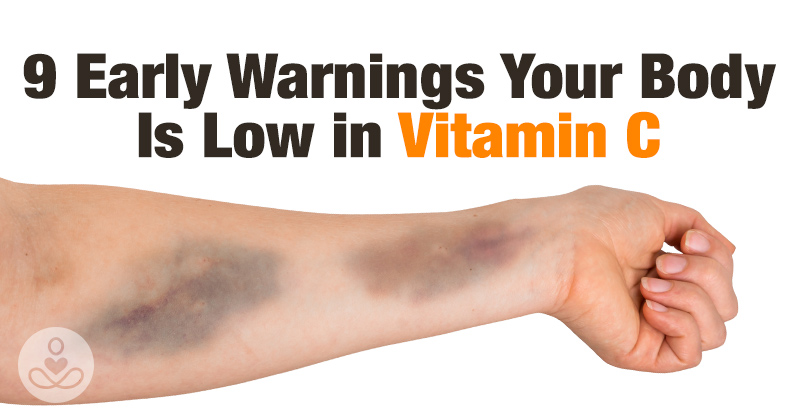I’m sure vitamin C needs no introduction to you. We know it’s found in ample amounts in our citrus fruits and often taken as a supplement to boost immune systems or pulled out when a cold hits us. But what many people don’t realize, is that you can actually become deficient in Vitamin C and there are some pretty common warning signs that will tip you off. The interesting thing about vitamin c is that it’s one of the water-soluble vitamins. This means that it’s not actually stored in our body unlike fat-soluble vitamins like vitamin D and A which will actually build up so you can have reserves in your body that will last over time.
Vitamin C is required on a regular basis
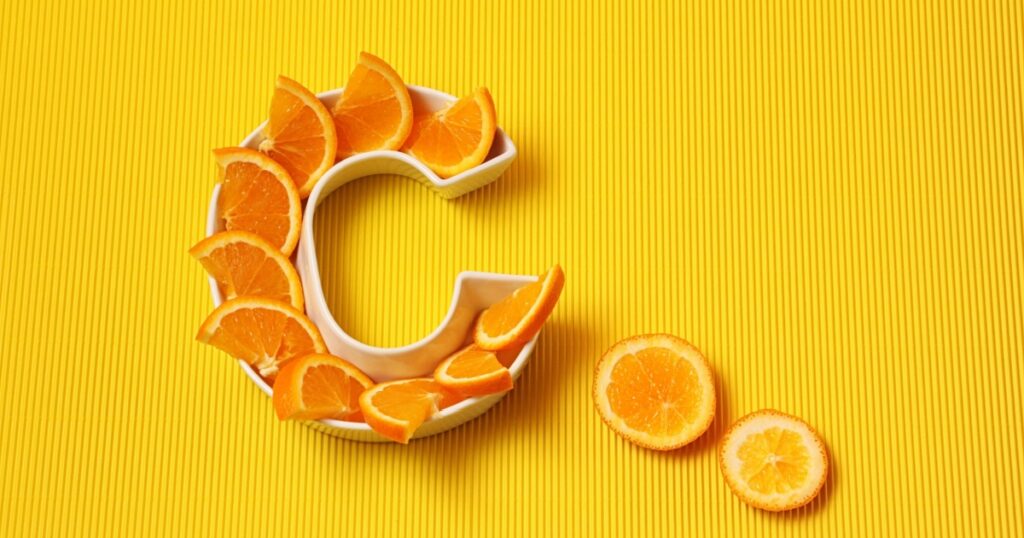
This is because the body will use what it needs and then simply pee out the excess in a relatively short time. It’s similar to B vitamins and that’s why your pee is often a bright color not long after you take them (vitamin B2 aka riboflavin is the particular reason for this) – your body has taken what it can and is getting rid of the rest. So, the important point with this is that we need to make sure we eat vitamin C-rich foods regularly to ensure we get enough. Don’t let this daunt you though, there are so many common foods that have ample amounts of vitamin C that you can include in your daily diet to ensure you get enough.
Read More: The Connection Between Arthritis and Vitamin D
And although deficiency is relatively uncommon in our modern world, it can happen
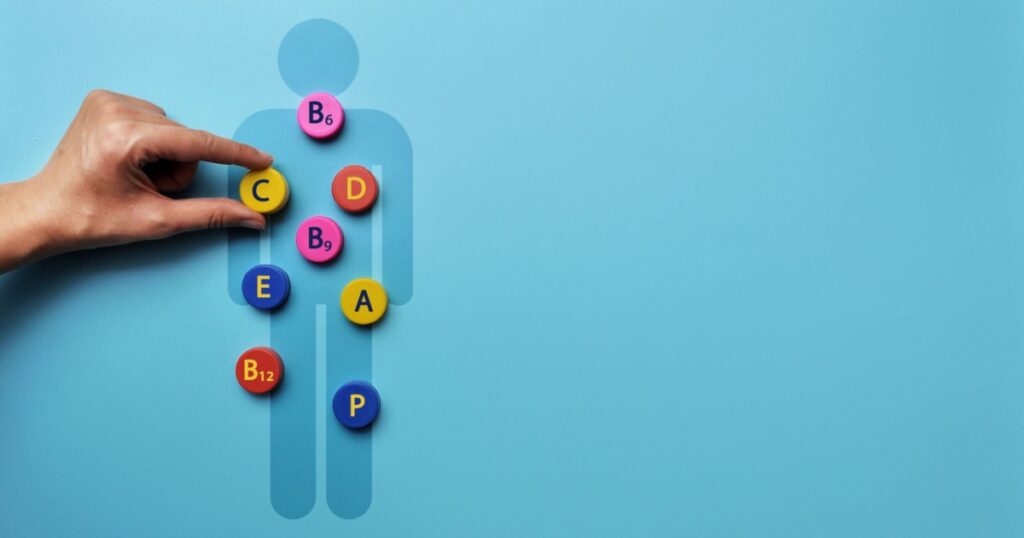
Populations are particularly susceptible to deficiency: those lacking key nutrients in their diet as a result of increased stress, eating a highly processed or limited diet, increased amounts of alcohol or anorexia, smoking, fever, viral illnesses, and people with kidney disease on dialysis are susceptible. As well, prolonged use of antibiotics, pain killers, exposure to petroleum products, carbon monoxide or heavy metals can contribute to a deficiency. These people should look at increasing vitamin c rich foods in their diet and/or supplementing.
We’ll get into the best sources further down, but first, let’s dive in a bit to this amazing vitamin.
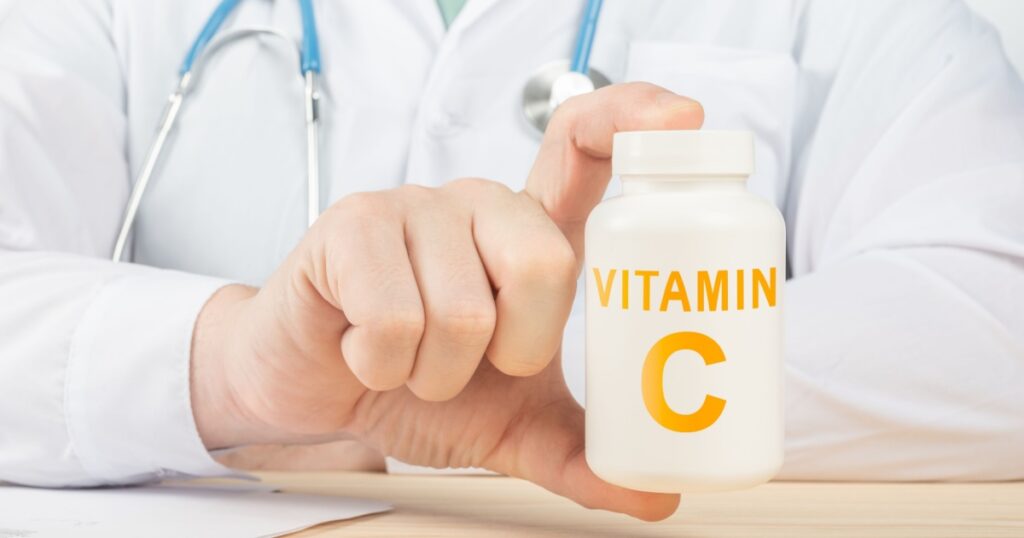
Vitamin C is an immune system booster, powerful anti-oxidant and key component in vibrant health. Also known as L-ascorbic acid it is an essential vitamin for the body and a key component to many functions in the body including collagen production, regulation of gene expression, it’s a cofactor of carnitine which is required for energy metabolism as well as being a very potent antioxidant which helps prevent cell damage through oxidation, just to name a few. Another perk of vitamin c is its effects on the skin. Key to collagen production and being a powerful anti-oxidant, having a vitamin c rich diet can help support healthy, plump and youthful-looking skin. And who doesn’t want that?
Even more great things about this amazing vitamin

There is also some great research that shows, in any population, and even more in athletes, supplementation of vitamin C is able to reduce the duration of the common cold by 8-14% when it is taken as a daily preventative measure, or at the beginning of a cold. It’s no wonder that people pop back the vitamin c supplements and foods when faced with the common cold. Some promising studies indicate that higher levels of circulating vitamin C are associated with lower risks of coronary heart disease, stroke, and hypertension. There is also ongoing positive research on using IV or high doses of vitamin C in cancer care, as cancer patients are often shown to have lower levels of the vitamin in circulation. Vitamin C is also shown to preserve testosterone levels in men and it helps to modulate cortisol levels and provides neuroprotective benefits and effects for blood flow. Short answer: It’s essential and does a lot of beneficial and powerful things for our bodies! Although deficiency is quite uncommon in the developed world, it can happen.
Read More: 7 Of The World’s Worst Health Conditions That Are Linked To Vitamin D Deficiency
Here are a few warning signs that may indicate your body is deficient or low in this nutrient:
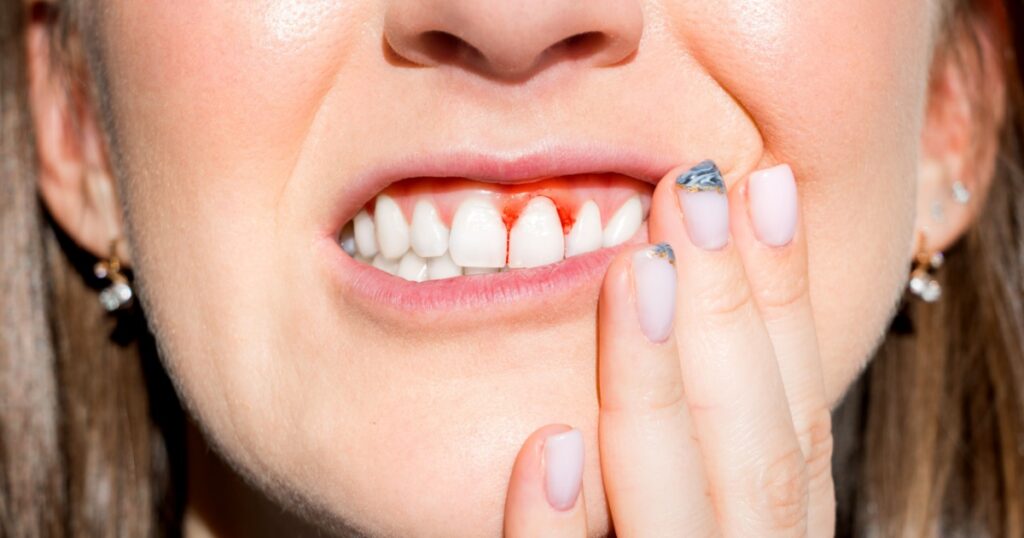
- Bleeding Gums – When gums become red, swollen, or bleed excessively or without reason, it may be a sign of deficiency. The tissue becomes inflamed and weaker with deficient vitamin C which means the blood vessels will bleed more easily.
- Poor Wound Healing – Since vitamin C is key in collagen formation (a substance which helps knit the skin together) a deficiency slows the rate of collagen formation, and causes wounds to heal more slowly. This is one of the more advanced symptoms so it’s something to look at supplementing if you’re noticing things are slower to heal
- Oddly shaped fingernails – often due to iron deficiency but vitamin c is a key component in iron absorption so finding yourself with spoon-shaped or concave-shaped nails that are thin and brittle might be a sign to boost up your vitamin C.
- Bruising easily – often one of the first or most obvious signs as a deficiency weakens blood vessels, which results in increased or easier bruising.
- Rough, uneven skin – most commonly seen on the thighs, backs of arms, or buttocks is due to a buildup of keratin protein inside the pores called keratosis which and rectifies fairly easily with supplementation
- Corkscrew body hair – This results from deficiency causes a defect in the protein structure of hair, causing it to grow in a bent or coiled shapes. This is often hard to notice as the hair is also prone to breaking easily so its hard to catch. Simple supplementation corrects this in a relatively short time
- Poor Bone Health – Vitamin C is key in bone formation, a deficiency can contribute to the risk of fractures or osteoporosis
- Poor Immune function – vitamin C has strong pathogen fighting components helping to combat infection so when one is deficient, they are at higher risk of infections or may catch things easily or have a hard time fighting things off
- Anemia – a key component in iron absorption from non-heme sources, low levels of vitamin C may put individuals at risk for anemia through malabsorption of iron.
- Weight gain – there are some interesting studies on weight loss or prevention of weight gain and vitamin C. It’s shown to regulate the release of fat from fat cells, decrease inflammation in the body and reduce stress hormones just to name a few things.
There’s more

There are other symptoms such as decreased energy, irritability, chronic inflammation in the body are also potential signs of vitamin c deficiency. Not to worry though, these things are all easily rectified by increasing your daily intake of foods and supplementing when necessary.
Best Vitamin C Sources:

- Papaya gives you a topping 224%, if you eat 1/2 cup of bell peppers, it will give you 150% of your daily requirement and 1/2 cup broccoli about 85%. Brussels sprouts also offer a significant amount.
- Strawberries pineapple, orange, acerola cherry, guava, black currents, lemon grapefruits and kiwi are all chock full of vitamin C and just one/day will give you ample. Cantaloupe has a decent amount and even potatoes, cauliflower and parsley have some.
- It’s also important to note that eating food in its freshest form is ideal, as vitamin C is sensitive to heat, light, air, and water which means it will be destroyed if we overcook foods or boil them in water. The keys to optimum vitamin C retention is fresh, flash cooking with as little water as possible.
- A simple squeeze of citrus over sautéed greens or some fresh red or green peppers mixed in with some cooked veggies or eating some fresh fruit daily can be an optimal way to make sure you’re getting the maximum amount!
Supplemental Vitamin C

You can supplement vitamin c if you’re unable to get enough through food or find yourself run down, needing an extra boost or are a smoker or have one of the risk factors mentioned above. Supplementation is relatively easy and safe as high levels aren’t related to toxicity like fat-soluble vitamins are prone to. But high dosages over 2000 mg/day may cause digestive upset such as abdominal cramps, loose bowels or nausea. Men who take high doses slightly increase their risk for oxalate kidney stones, so if you’re prone to those, it’s best to take moderate doses. And although iron absorption increased by 67% when they took 100 mg of vitamin C with a meal, overconsumption of iron-rich foods and vitamin c if you’re not anemic or depleted, may increase accumulation in the body over a long period of time. So moderation and using food sources instead of supplementing is ideal as there is no risk of having too much through food consumption.
If you are deficient or require occasional supplementation
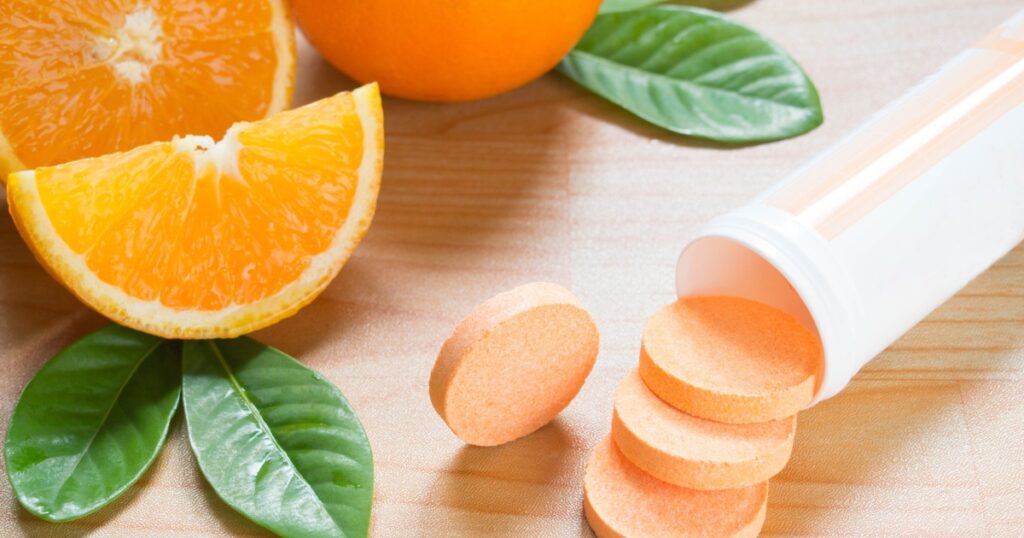
It is best to get a high-quality source that is extracted from whole foods if you can and just use it for shorter periods of time or in moderate dosages unless prescribed by your health care professional. So overall, high quality fresh nutrient-dense food is your best choice for getting vitamin C. Include fresh forms first and look to supplement only when down, at risk for deficiency, or noticing you’re not able to get an adequate amount from your food. As always, if you have any questions or would like some more specific guidance, don’t hesitate to reach out to your Naturopath or health specialist. Otherwise, eat up and enjoy good health!
Read More: This Leaf Extract has 400 Times More Antioxidant Power Than Vitamin C
Sources
- https://lpi.oregonstate.edu/mic/vitamins/vitamin-C
- https://www.ncbi.nlm.nih.gov/pmc/articles/PMC3783921/
- https://ods.od.nih.gov/factsheets/VitaminC-HealthProfessional/
- Skin :
- Bruising:
- Slow-healing wounds:
- Immune system:
- Cancer care:
- Bone loss:
- Immune function:
- Iron
- Obesity
